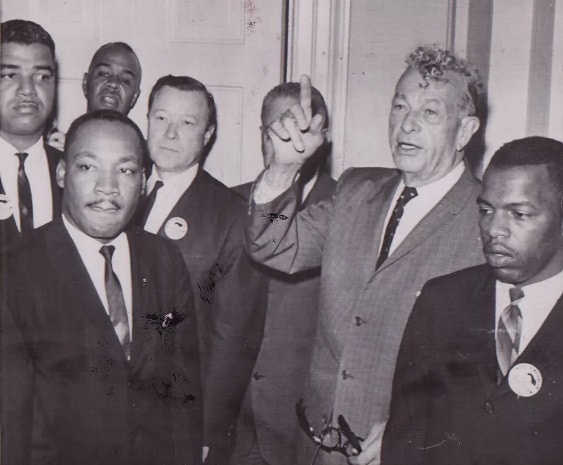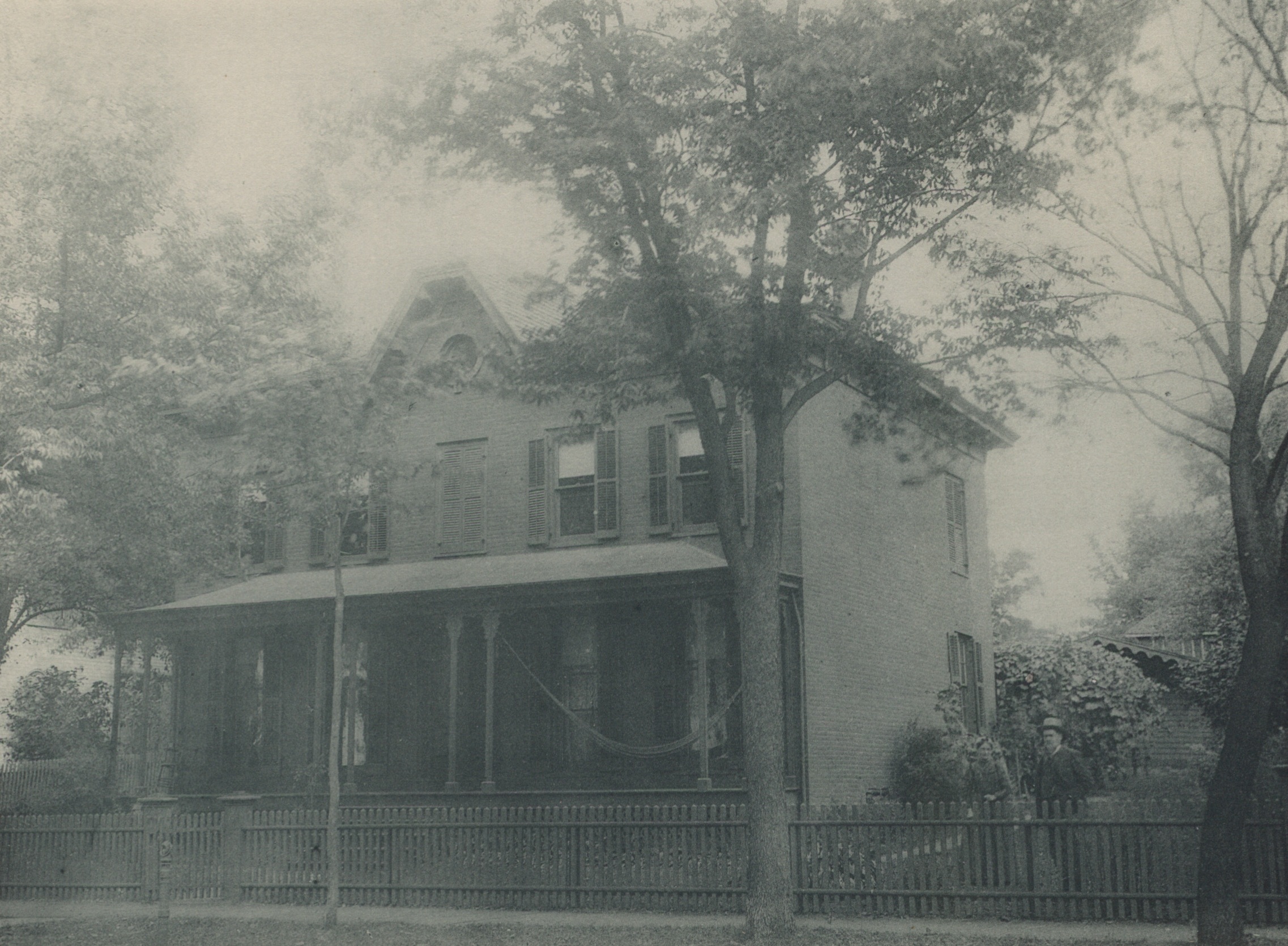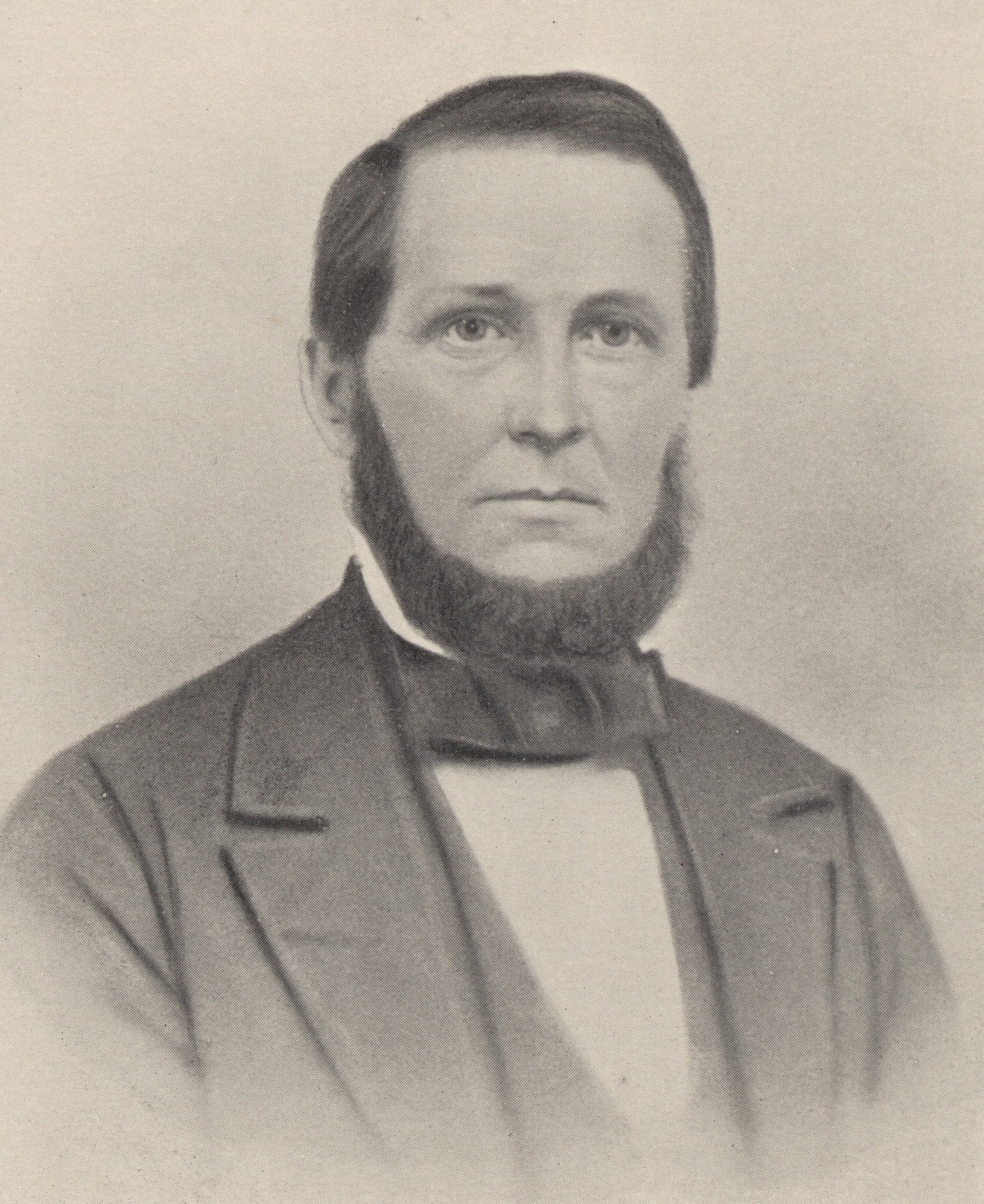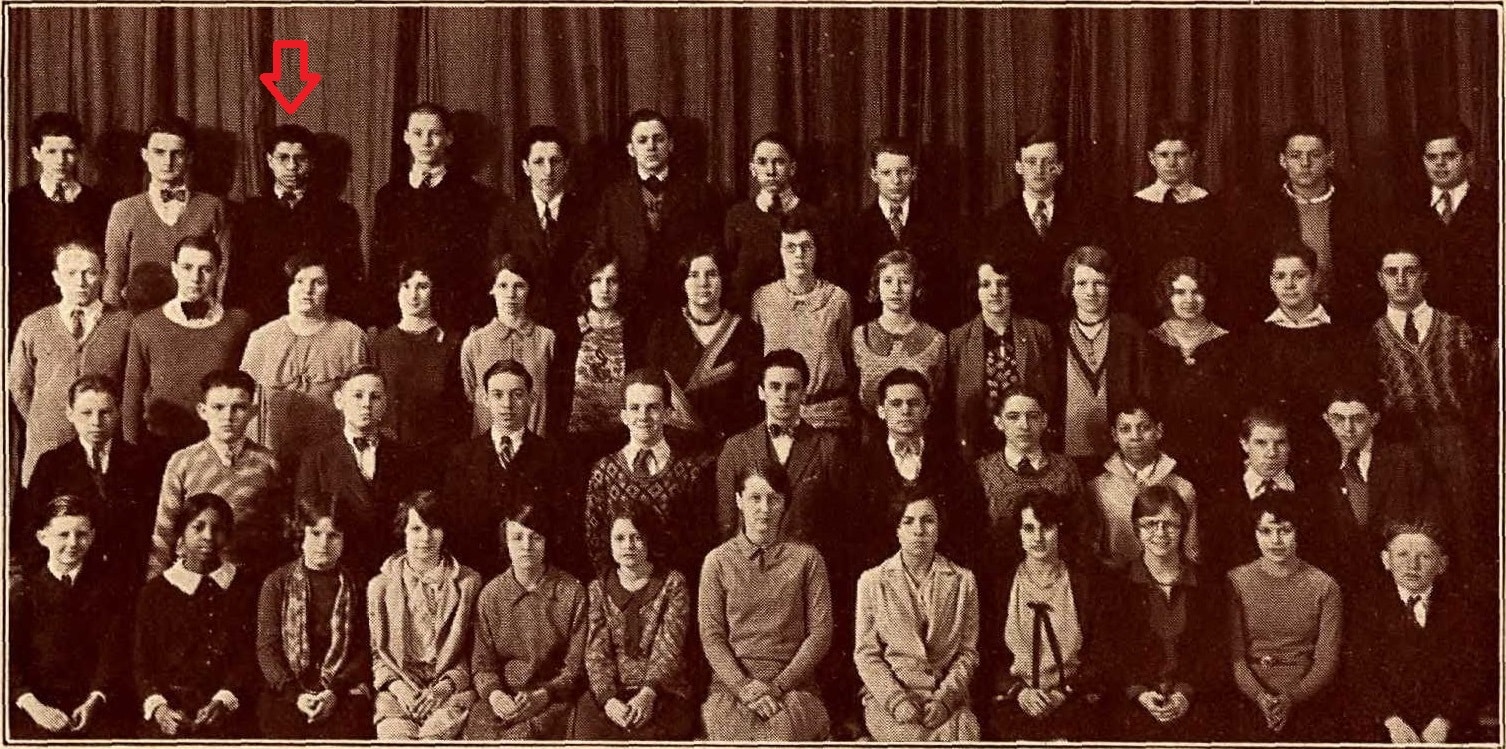This year’s celebration of Pekin’s Bicentennial coincides with the 60th anniversary of the federal Civil Rights Acts of 1964. Consequently, it is a very appropriate time to recall the crucial role that Pekin’s own Sen. Everett McKinley Dirksen played in the passage of that landmark legislation that has transformed American culture and society.
As a matter of fact, were it not for Dirksen, the efforts to pass the Civil Rights Act of 1964 would have foundered. Dirksen’s place in the story is spotlighted by Frank H. Mackaman, former director of the Dirksen Congressional Center, in his 2006 book, “The Long, Hard Furrow – Everett Dirksen’s Part in the Civil Rights Act of 1964,” a copy of which is in the Pekin Public Library’s Local History Room collection.
The story that Mackaman tells takes the reader behind the scenes in Washington, D.C., uncovering, or at times speculating about, the political stratagems and deal-making that brought about the bill’s passage. The bill was introduced by the administration of President John F. Kennedy on 19 June 1963 (98 years after the first Juneteenth in Galveston, Texas), when the Kennedy administration sent the bill to the House of Representatives. Dubbed HR 7152, the bill had 11 sections or “titles,” conventionally designed by Roman numerals.
Even though the Democratic Party controlled the White House as well as both houses of Congress, the bill encountered opposition in Congress from segregationist, racist Democrats from the South. In addition, although the Republican Party had long supported civil rights for blacks in the face of Democrat opposition, many Republicans nevertheless objected to certain provisions of the bill on constitutional grounds.
Dirksen, who was the leader of the Republican Party in the Senate, himself was favorable to the bill in general. He had a solid record of support for civil rights legislation, but he expressed principled objections to some of the wording in Title II, on “Public Accommodations,” which prohibited places that are open to the general public from discriminating against anyone on the basis of race.
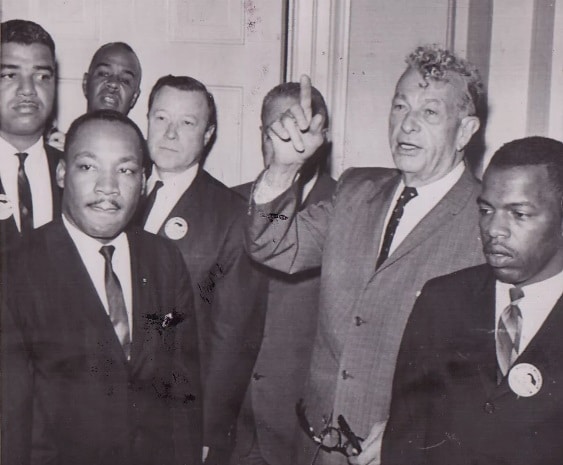
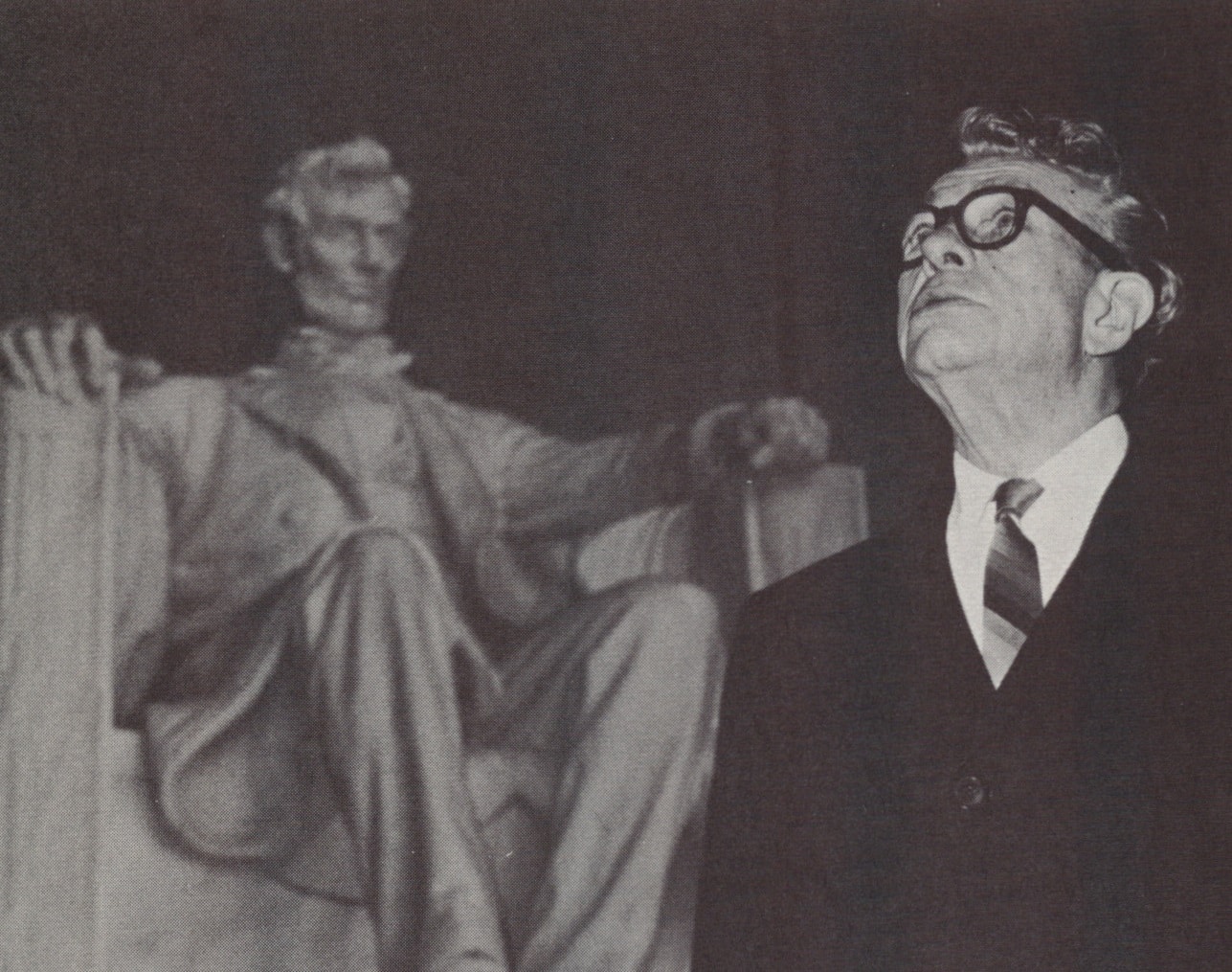
Mackaman explains Dirksen’s initial position on Title II in this way (p.22):
“Traditional Republican civil rights supporters argued that the provision should rest on the 14th amendment’s guarantee that blacks should not be denied equal protection of the laws by any state, rather than on Congress’s power to regulate interstate commerce as the administration bill proposed. In June 1963, Dirksen sided with those who would support only a voluntary public accommodations provision. He opposed Title II.”
Because the Democrats were sharply divided on civil rights, the Kennedy administration and the Democratic Congressional leadership understood that the Civil Rights Act could not pass without solid bipartisan support. That meant the Democrats needed Republican support. The Republicans also were divided on this issue, but not as sharply as the Democrats. Because Dirksen was then the Senate minority leader, the White House and Congressional Democrats knew they needed Dirksen on their side.
The Washington Press corps also knew Dirksen’s support for the bill was crucial. As Mackaman says (p.26), “Doris Fleeson, writing for the [Washington] Evening Star in mid-July [1963], for example, opened her story on civil rights with these words: ‘The man to watch during Washington’s bruising civil rights battle is not President Kennedy, the Attorney General or the Negro leaders but effusive, ever-loving Dirksen.”
To ensure Dirksen’s support, the White House and Congressional Democrats pursued a two-pronged approach, using what they called an “Inside Strategy” and an “Outside Strategy.” The “Inside Strategy” consisted of efforts from Sen. Hubert Humphrey and other Democrats to woo Dirksen, while the “Outside Strategy” was made up of letter writing, advocacy from church leaders, marches and street protests and printed newspaper editorials. Mackaman observes that it’s not clear how effective either strategy was, and in particular Dirksen did not like pressure tactics of the sort deployed in the “Outside Strategy.”
In any case, at the time of Kennedy’s assassination on 22 Nov. 1963, the bill remained deadlocked. The day before Kennedy’s assassination, Dirksen had criticized Kennedy for inaction on the bill, and Mackaman concurs with Dirksen’s criticism, writing, “. . . Kennedy had been a reluctant warrior in the battle for civil rights . . . he chose not to make it a priority” (p.33). Kennedy’s focus was on foreign policy.

Things changed under President Lyndon Johnson, and the early months of 1964 saw a renewed bipartisan push to overcome the issues that had kept the bill bogged down in Congress. After a good deal of debate and negotiation, passages of the bill were amended to Dirksen’s satisfaction, and he threw his unreserved support behind it.
“[W]e dare not temporize with the issue which is before us,” Dirksen said in his speech calling for the Senate to end debate (“cloture”) and proceed to a vote. “It is essentially moral in character. It must be resolved. It will not go away.” Speaking of the struggle against racial discrimination, Dirksen said, “It has been a long, hard furrow and each generation must plow its share . . . The time has come for equality of opportunity in sharing of government, in education, and in employment. It must not be stayed or denied. It is here!”
Wholly apart from the momentous issue before the Senate, the vote for cloture was itself historic. As Mackaman writes, “Never in history has the Senate been able to muster enough votes to cut off a filibuster on a civil rights bill. And only once in the thirty-seven years since 1927 had it agreed to cloture for any measure.” Yet that is exactly what the Senate did. On 10 June 1964, the motion to end debate passed by a vote of 71-29, with 44 Democrats and 27 Republicans voting for cloture and 23 Democrats (20 of them from the South) and only six Republicans opposed.
Only minutes after the vote, Washington NAACP chief Clarence Mitchell told reporters, “It’s simply fantastic. [Dirksen] worked steadily and effectively for the bill. No one deserves more credit from our point of view.” Mitchell’s sentiments were echoed by many other members of the civil rights coalition.
The bill was then formally approved by the Senate on June 19 (Juneteenth!), by a vote of 73-27. About two weeks later, the House of Representatives approved the Civil Rights Acts of 1964 and President Johnson signed it into law on July 2.
And the rest, as they say, is history.
Here are key excerpts from Dirksen’s 10 June 1964 speech calling for an end to debate on the Civil Rights Acts of 1964:
“Mr. President, it is a year ago this month that the late President Kennedy sent his civil rights bill and message to the Congress. For two years, we had been chiding him about failure to act in this field. At long last, and after many conferences, it became a reality. After nine days of hearings before the Senate Judiciary Committee, it was referred to a subcommittee. There it languished and the administration leadership finally decided to await the House bill. . . .
“It is now 4 months since it passed the House. It is 3½ months since it came to the Senate calendar. Three months have gone by since the motion to consider was made. We have acted on one intervening motion to send the bill back to the Judiciary Committee and a vote on the jury trial amendment. That has been the extent of our action.
“Sharp opinions have developed. Incredible allegations have been made. Extreme views have been asserted. The mail volume has been heavy. The bill has provoked many long-distance telephone calls, many of them late at night or in the small hours of the morning. There has been unrestrained criticism about motives. Thousands of people have come to the Capitol to urge immediate action on an unchanged House bill. For myself, I have had but one purpose and that was the enactment of a good, workable, equitable, practical bill having due regard for the progress made in the civil rights field at the state and local level.
“I am no Johnnie-come-lately in this field. Thirty years ago, in the House of Representatives, I voted on anti-poll tax and anti-lynching measures. Since then, I have sponsored or co-sponsored scores of bills dealing with civil rights. . . .
“Today the Senate is stalemated in its efforts to enact a civil rights bill . . . . There are many reasons why cloture should be invoked and a good civil rights measure enacted. First. It is said that on the night he died, Victor Hugo wrote in his diary, substantially this sentiment: ‘Stronger than all the armies is an idea whose time has come.’ The time has come for equality of opportunity in sharing in government, in education, and in employment. It will not be stayed or denied. It is here. . . .
“There is another reason – our covenant with the people. For many years, each political party has given major consideration to a civil rights plank in its platform. Go back and reexamine our pledges to the country as we sought the suffrage of the people and for a grant of authority to manage and direct their affairs. Were these pledges so much campaign stuff or did we mean it? Were these promises on civil rights but idle words for vote-getting purposes or were they a covenant meant to be kept? If all this was mere pretense, let us confess the sin of hypocrisy now and vow not to delude the people again.
“To you, my Republican colleagues, let me refresh you on the words of a great American. His name is Herbert Hoover. In his day he was reviled and maligned. He was castigated and calumniated. But today his views and his judgment stand vindicated at the bar of history. In 1952 he received a volcanic welcome as he appeared before our national convention in Chicago. On that occasion he commented on the Whig Party, predecessor of the Republican Party, and said: ‘The Whig party temporized, compromised upon the issue of freedom for the Negro. That party disappeared. It deserved to disappear. Shall the Republican party receive or deserve any better fate if it compromises upon the issue of freedom for all men?’
“To those who have charged me with doing a disservice to my party because of my interest in the enactment of a good civil rights bill – and there have been a good many who have made that charge – I can only say that our party found its faith in the Declaration of Independence in which a great Democrat, Jefferson by name, wrote the flaming words: ‘We hold these truths to be self-evident that all men are created equal.’ That has been the living faith of our party. Do we forsake this article of faith, now that equality’s time has come or do we stand up for it and ensure the survival of our party and its ultimate victory? There is no substitute for a basic and righteous idea. . . .
“There is another reason why we dare not temporize with the issue which is before us. It is essentially moral in character. It must be resolved. It will not go away. Its time has come. Nor is it the first time in our history that an issue with moral connotations and implications has swept away the resistance, the fulminations, the legalistic speeches, the ardent but dubious arguments, the lamentations and the thought patterns of an earlier generation and pushed forward to fruition. . . .
“Pending before us is another moral issue. Basically it deals with equality of opportunity in exercising the franchise, in securing an education, in making a livelihood, in enjoying the mantle of protection of the law. It has been a long, hard furrow and each generation must plow its share. Progress was made in 1957 and 1960. But the furrow does not end there. . . .
“There is no substitute for a basic ideal. We have a firm duty to use the instrument at hand; namely, the cloture rule, to bring about the enactment of a good civil rights bill. I appeal to all senators. We are confronted with a moral issue. Today let us not be found wanting in whatever it takes by way of moral and spiritual substance to face up to the issue and to vote cloture.”


